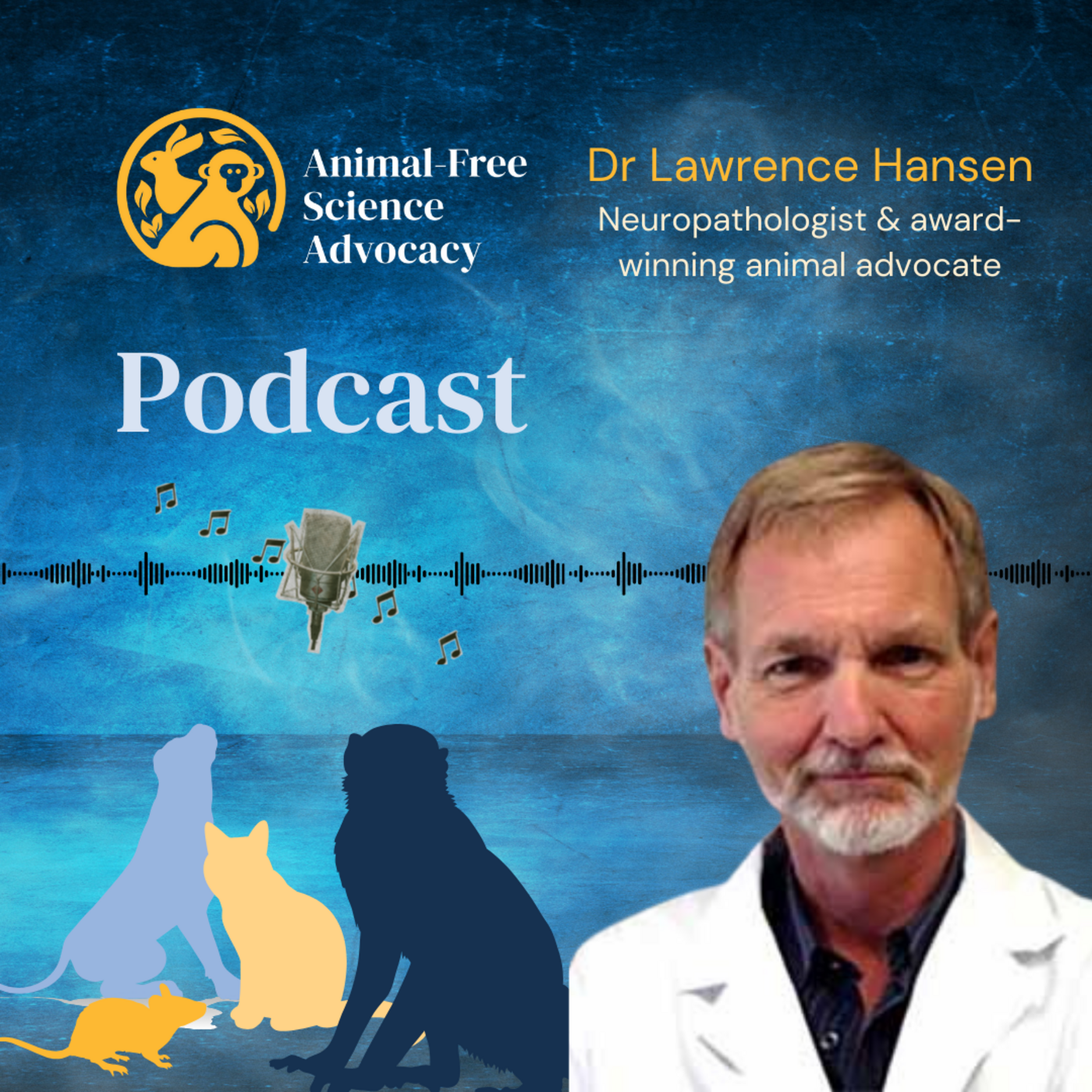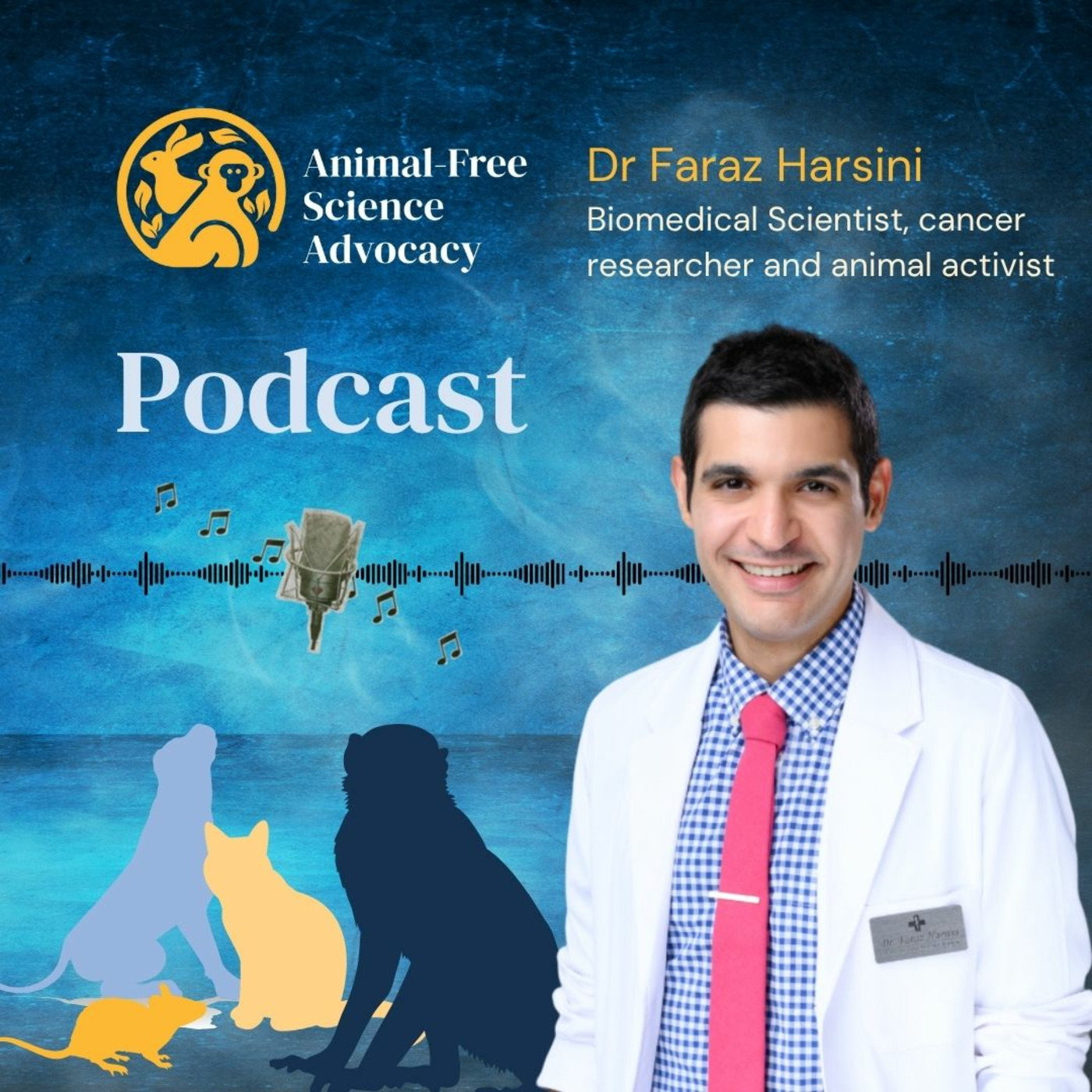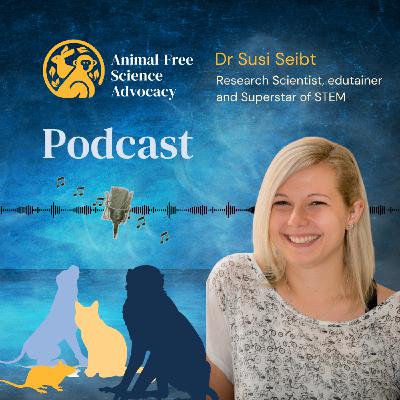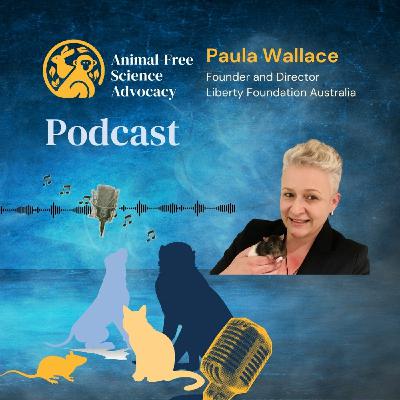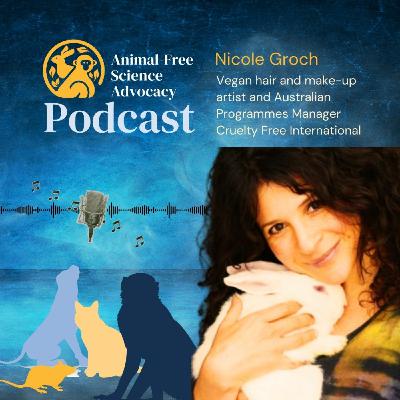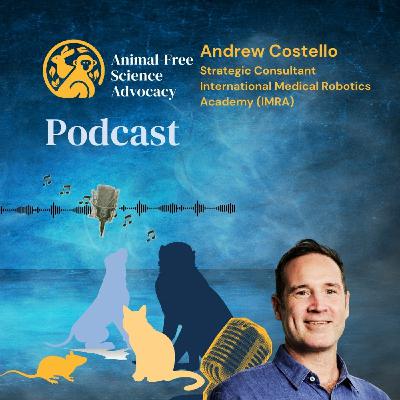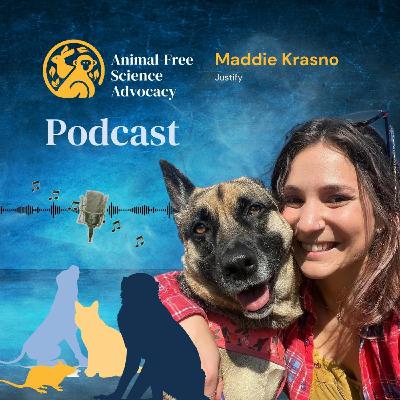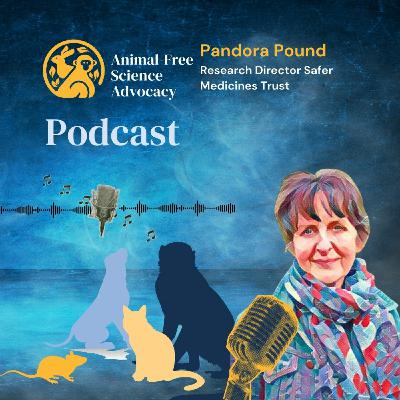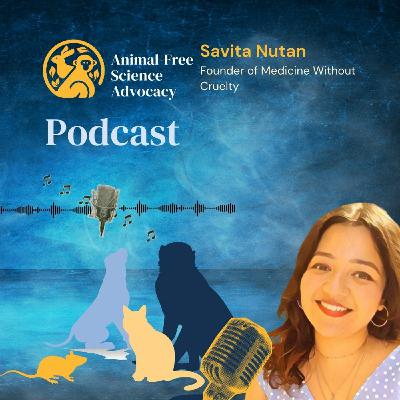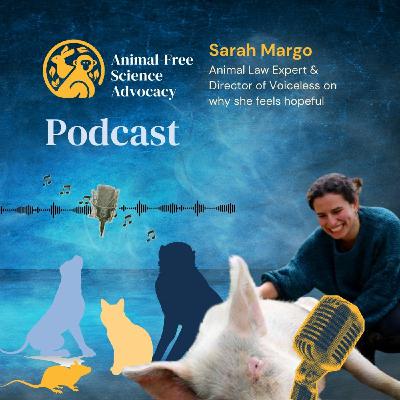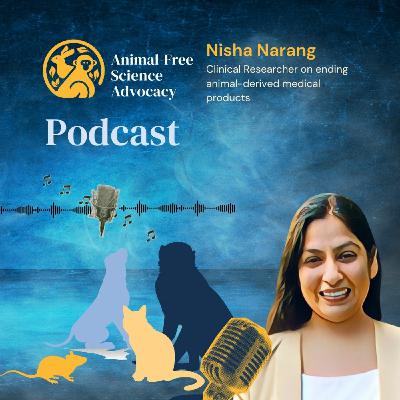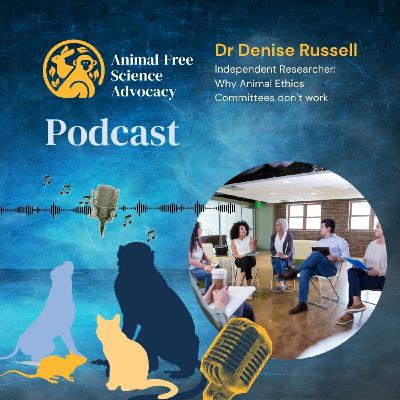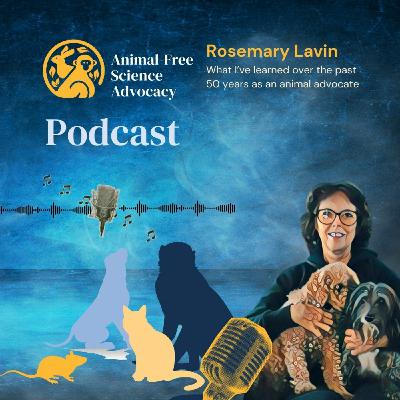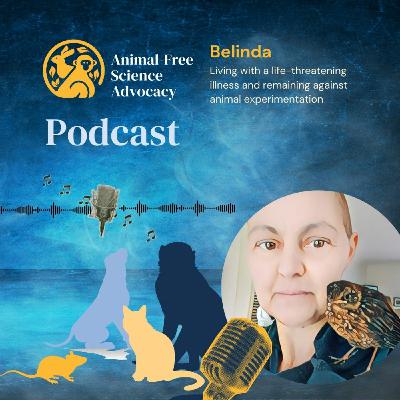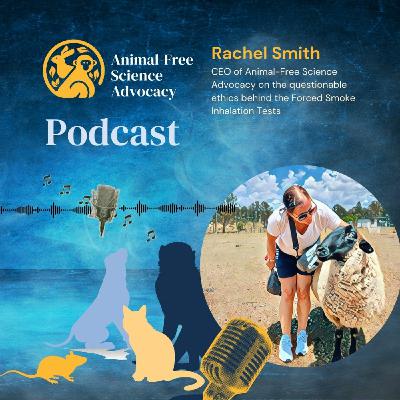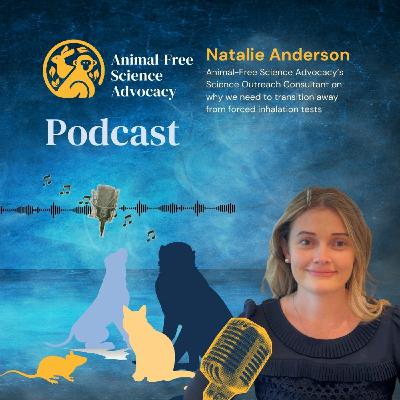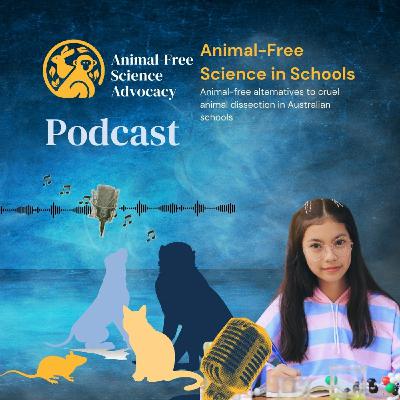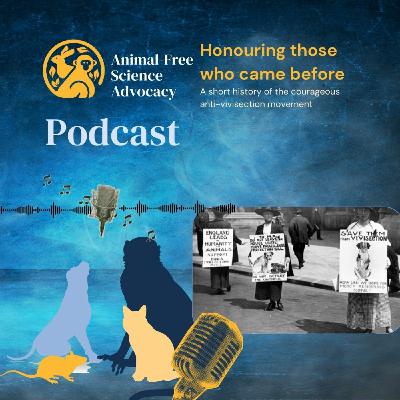Discover Animal-Free Science Advocacy
Animal-Free Science Advocacy

Animal-Free Science Advocacy
Author: Rachel Smith
Subscribed: 3Played: 9Subscribe
Share
© Copyright 2025 Rachel Smith
Description
Campaigning for a future where no animals are harmed in the name of science, and scientific progress is advanced through animal-free research methods.
Opinions expressed by guests in the AFSA podcast are their own and independent of AFSA.
23 Episodes
Reverse
In this engaging episode of the AFSA Podcast, we are joined by Dr. Lawrence Hansen, a distinguished neuropathologist and advocate for animal-free research. We delve deep into the issues of animal experimentation in neuroscience research, addressing some of the ethical and scientific implications. The episode highlights how outdated methodologies persist despite advancements in human-relevant research techniques, emphasizing the need for a paradigm shift in scientific research practices. Dr. Hansen outlines the challenges inherent in studying neurodegenerative diseases such as Alzheimer’s with animal models, pointing out that these models fall short of replicating the human condition. He passionately argues for a shift towards human-based research applications that show promising advancements and efficacy over traditional animal testing methods. The discussion also uncovers systemic issues in scientific communities and funding bodies that sustain outdated practices, highlighting ethical concerns and potential pathways for advocacy and change. *Note: The first two questions include quite scientific explanations—but don’t worry, the conversation quickly opens up into broader ethical issues, so we encourage all listeners (even those without a science background) to stay tuned!For more info visit AFSA. Click here to read more about primate experimentation in Australia.Read the transcript here.
In this episode of the AFSA Podcast, we speak with Dr. Faraz Harsini, a leading voice in animal rights and biomedical engineering. The conversation dives deep into Dr. Harsini's inspiring journey from an omnivorous upbringing in Iran to founding Allied Scholars for Animal Protection and leading the college campus movement toward veganism. Key discussions revolve around the importance of educating young minds on animal use and the interconnectedness of animal rights with broader societal issues such as climate change and public health. Dr. Harsini shares his insights on the inefficacies of animal testing, revealing its limitations and highlighting the potential of non-animal methods (NAMs) to revolutionize scientific research. His candid reflections on the challenges he overcame in reconciling personal and cultural beliefs with his current advocacy work offer listeners a unique perspective into the moral urgency of veganism and animal rights. Read the episode transcript here. If you would like to support Allied Scholars for Animal Protection (ASAP), or if you're a student interested in starting a chapter, visit their website to learn how you can get involved!
www.alliedscholars.org/
www.instagram.com/alliedscholars
Connect with Dr. Harsini:
https://www.instagram.com/dr_faraz_harsini/
https://www.youtube.com/c/DrFarazHarsini
This episode of the AFSA podcast features Dr. Susi Seibt, an expert in microfluidics and science communication. Dr. Susi walks us through the revolutionary advancements in non-animal research methods (NAMs) and their applications in medical research and drug development. Her discussion provides a glimpse into a future where research may no longer require animal testing.In the conversation, Dr. Susi elaborates on innovative techniques such as microfluidics and organ-on-a-chip technologies. The conversation covers the strengths and limitations of these technologies, their implementation in personalized medicine, and the global movement towards reducing animal experimentation. Investing in NAMs not only promotes ethical scientific practices but also paves the way for more accurate and human-relevant data. Click here for more information on NAMs. To hear more from Dr. Susi visit:www.shelium.nethttps://www.youtube.com/@sheliumTikTok: @shelium.scienceInstagram: @shelium.scienceRead the podcast episode transcript here.
In this episode, Rachel welcomes Paula Wallace, Founder and Director of the Liberty Foundation Australia to discuss the inspiring mission of her organisation. Liberty Foundation is at the forefront of creating a viable transition for domestic animals from research facilities into loving homes. Tune in as Paula unfolds the foundation’s progress, challenges, and future aspirations, including the exciting opening of a rehoming centre on the Central Coast of New South Wales.View videos of the happy endings for adopted animals thanks to the Liberty Foundation on YouTube.Read the episode transcript.
Nicole Groch, Australian Programs Manager at Cruelty Free International and a vegan hair and makeup artist, shares insights on ending animal testing globally, the rigorous Leaping Bunny certification process, and the evolution of cruelty-free and vegan products. She discusses the transformative impact of major Australian brands like Kmart and Sukin committing to cruelty-free practices. Nicole’s personal and professional journey highlights the power of consumer choices in driving industry change, and offers practical tips for identifying genuinely cruelty-free products. Tune in to learn how your choices can support a cruelty-free future.Search for Cruelty free products | Cruelty Free InternationalNicole Groch Cruelty Free, Vegan Hair & Makeup
Andrew Costello, Strategic Consultant to the International Medical Robotics Academy (IMRA) discusses the benefits of non-animal surgical training methods and outlines IMRA's world-leading training programs and high-fidelity synthetic models. Find out more about IMRA on their website. Read AFSA's web resource on surgical training.
Maddie holds a master’s degree in Humane Education and has worked in animal protection for over a decade. During her undergraduate education, Maddie worked for two years at UW-Madison’s Harlow Primate Research Laboratory and was later diagnosed with PTSD as a result. Maddie discusses her experiences and the organisation she has co-founded, Justify. Maddie hopes Justify will establish greater transparency in the animal research industry and become the community she wishes she had when she left the primate lab in 2013.
Dr Pandora Pound is Research Director at the Safer Medicines Trust. Dr Pound has written numerous influential papers on the scientific drawbacks of using animals as models for humans. Her newly published book ‘Rat Trap’ is a must-read. https://animalfreescienceadvocacy.org.au/product/rat-trap-by-dr-pandora-pound/
Savita Nutan is a science communicator, educator and former researcher who founded Medicine Without Cruelty in the UK. We interviewed her for the Animal-Free Science Advocacy podcast all about why medical research needs to urgently transition away from using obsolete and cruel animal methods towards far superior animal-free methods of research.Savita Nutan on Twitter: https://twitter.com/savitanutanMedicine Without Cruelty: https://medicinewithoutcruelty.com/
Animal-Free Science Advocacy CEO Rachel Smith interviews Sarah Margo, an expert in animal law on her perspective of the failings of the Australian regulatory system surrounding animals in science. Sarah is Policy Advisor to the Hon. Emma Hurst MLC of the Animal Justice Party, Animal Law Teaching Fellow at UNSW and Director of Voiceless, the animal protection institute and an Animal Law and Policy Consultant.Learn more about Voiceless: https://voiceless.org.au/
Animal-Free Science Advocacy CEO Rachel Smith interviews Nisha Narang, the CEO and founder of Leorah Clinical, a clinical research company with the mission is to bring sustainable, animal derivative-free medical products to people everywhere. More about Leorah Clinical: https://www.leorahclinical.com/
Animal-Free Science Advocacy speaks with member and clinical neuroscience researcher Dr Hugo Morandini about his research and reflections on the use of animals in research. Dr Hugo Morandini is a clinical neuroscience researcher with a deep interest in animal-free research methods. He is currently a member of Animal-Free Science Advocacy's management committee. Dr Hugo Morandini at UWAWatch the podcast episode on YouTube
Animal-Free Science Advocacy interviews Dr Denise Russell, an academic and independent researcher who specialises in animal ethics about her research on the effectiveness of animal ethics committees.Denise was the founding editor and managing editor of Animal Issues, a journal covering a wide range of topics related to human/animal interactions, now incorporated into Society & Animals published by Brill.She is the author of Who Rules the Waves: piracy, overfishing and mining the oceans Dr Denise Russell: Australasian Animal Studies AssociationRussell, D. (2012). Why animal ethics committees don't work. Between the Species: an online journal for the study of philosophy and animals, 15 (1), 127-142.
Rosemary has spent the vast majority of her life fighting for animals in a personal and professional capacity. In this podcast she speaks with Animal-Free Science Advocacy about what she has learned throughout her long and diverse history in animal advocacy.Image supplied by Rosemary Lavin. Caption: Rosemary with Ruby and Dougal, her rescue dogs she adopted through Beagle Freedom Australia.
Would you support animal experimentation if you were diagnosed with a life threatening illness?In this episode of the Animal-Free Science Advocacy podcast, we chat with HRA supporter Belinda who is a passionate animal advocate. She shares her perspective on animal experimentation and her experiences living through cancer.
For several years, Animal-Free Science Advocacy has been closely monitoring the use of forced inhalation studies in Australian Institutions.This led to the development of our report: "Optimising Inhalation Research: Transitioning to Human-relevant Science."In this episode, we learn from Animal-Free Science Advocacy CEO Rachel Smith about the questionable ethics that surround the use of animals in smoke inhalation studies. These obsolete tests continue to be used in some Australian universities and research institutes.There are safe, precise and animal-free methods that can be used instead of these tests. Read our report: Optimising Inhalation Research: Transitioning to Human-relevant ScienceLearn more about our Forced to Smoke campaign. Connect with HRA in the following ways: Website: https://www.humaneresearch.org.au/Facebook: https://www.facebook.com/HumaneResearchAustraliaInstagram: https://www.instagram.com/humaneresearch/Twitter: https://twitter.com/hraust?lang=enLinkedIn: https://www.linkedin.com/company/humane-research-australia
For several years, Animal-Free Science Advocacy has been closely monitoring the use of forced inhalation studies in Australian Institutions.This led to the development of our report: "Optimising Inhalation Research: Transitioning to Human-relevant Science."In this episode we interview the report's author, Natalie Anderson, a respiratory research scientist, who also works as Animal-Free Science Advocacy's Science Outreach Consultant. In this podcast episode, she’ll be stepping us through the key findings from our report and sharing her insights as a scientist who specialises in this field of research.There are safe, precise and animal-free methods that can be used instead of these tests.Read our report: Optimising Inhalation Research: Transitioning to Human-relevant ScienceLearn more about our Forced to Smoke campaign.
In this podcast, learn about the practice of dissection in Australian high schools, the alternatives available, and what educators can do to transition to cruelty-free teaching methods.Animal-Free Science Advocacy offer a loans of educational resources called the Humane Education Loan Program (HELP). This aims to provide educators and students with current, cruelty-free alternatives to animal use in teaching.
In this Animal-Free Science Advocacy podcast, we take a look at the obscure and courageous history of the anti-vivisection movement throughout the world. Learn about the trailblazing Australian organisations that paved the way for Animal-Free Science Advocacy's work in Australia today.
On 25 February 2020, 3 baboons escaped from a truck while being transported from a primate breeding colony to the Royal Prince Alfred Hospital. The ensuing media attention brought the previously hidden industry into the public limelight, raising the question as to just what research on baboons entailed. A year on, Animal-Free Science Advocacy discusses what we know and what has happened in the last year.


